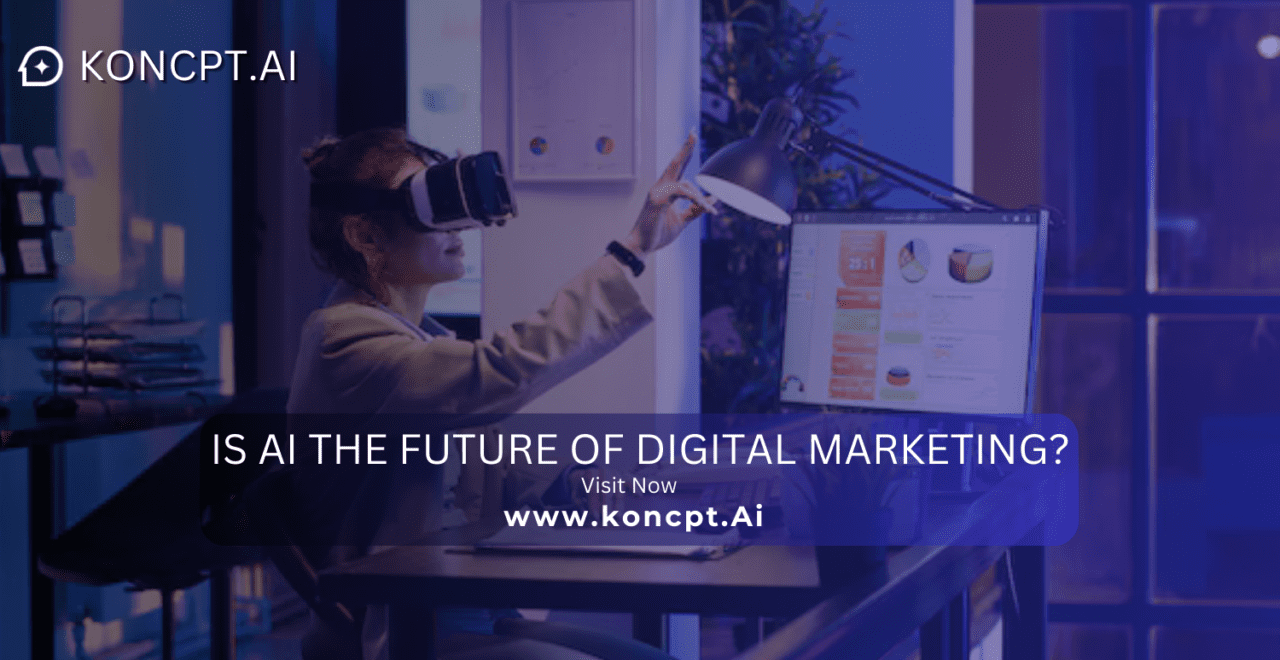Is AI the Future of Digital Marketing?
The digital marketing landscape is constantly evolving, with businesses always searching for innovative ways to connect with their audience and maximize their return on investment (ROI). Among the many transformative technologies, artificial intelligence (AI) has emerged as a game-changer, revolutionizing how marketers approach strategy, engagement, and campaign execution. But is AI truly the future of digital marketing? Let’s dive into the ways AI is reshaping the industry and explore its potential to lead the way forward.
1. Hyper-Personalization: A New Standard in Marketing
AI has introduced unprecedented levels of personalization, a critical element in modern marketing. By analyzing vast amounts of user data, AI can predict customer preferences and deliver tailored content, product recommendations, and advertisements.
For example, e-commerce platforms like Amazon use AI to recommend products based on browsing and purchase history, creating a shopping experience unique to each user. This personalization fosters deeper customer engagement and significantly increases conversion rates. As AI continues to evolve, hyper-personalized marketing will become the norm, setting new standards for consumer expectations.
2. Automation of Routine Tasks
Digital marketing often involves repetitive tasks, such as managing email campaigns, scheduling social media posts, and analyzing campaign performance. AI-powered tools like HubSpot, Marketo, and Hootsuite simplify these tasks, freeing marketers to focus on strategy and creativity.
For instance, AI-driven chatbots provide instant customer support, answering queries and resolving issues around the clock. This automation not only boosts efficiency but also enhances the customer experience, contributing to stronger brand loyalty.
3. Predictive Analytics for Smarter Decisions
AI’s ability to analyze historical data and predict future trends is revolutionizing decision-making in marketing. Predictive analytics tools such as Adobe Analytics and Google Analytics 4 empower businesses to anticipate customer behavior, optimize budgets, and identify high-performing campaigns.
By leveraging predictive analytics, marketers can allocate resources more effectively, ensuring campaigns deliver maximum impact and ROI. This proactive approach is shaping the future of strategic marketing.
4. Revolutionizing Content Creation
Content is at the core of digital marketing, and AI is transforming how it is created and optimized. Tools like Jasper, Copy.ai, and ChatGPT generate high-quality content at scale, from blog posts to ad copy. AI can also analyze top-performing content to suggest improvements, ensuring alignment with SEO best practices.
In addition, AI-driven platforms like Canva AI and Pictory simplify visual content creation, enabling marketers to produce engaging graphics and videos in minutes.
5. Optimizing Campaign Performance
AI excels at real-time analysis, helping marketers monitor and optimize campaigns as they unfold. Platforms like Facebook Ads Manager and Google Ads use AI algorithms to analyze audience interactions, automatically adjust bids, and refine targeting.
This dynamic approach ensures campaigns remain relevant and cost-effective, maximizing ROI while minimizing wasted spend.
6. Preparing for Emerging Trends
AI is at the forefront of new digital marketing trends, such as voice search, visual search, and augmented reality (AR). With the rise of voice assistants like Alexa and Siri, AI enables marketers to optimize for conversational queries. Visual search tools like Google Lens are changing how users discover products, and AI-driven AR experiences are creating immersive brand interactions.
As these technologies continue to grow, AI will play a pivotal role in helping businesses adapt and thrive in the evolving digital landscape.
Challenges and Ethical Considerations
Despite its immense potential, AI in digital marketing comes with challenges. Data privacy, algorithm bias, and ethical transparency are critical issues that must be addressed to build trust with consumers. Businesses must adopt responsible AI practices, ensuring their strategies align with regulatory standards and ethical guidelines.
Conclusion
AI is not just the future of digital marketing—it’s already shaping its present. By enabling hyper-personalization, automating tasks, optimizing campaigns, and anticipating trends, AI is empowering businesses to engage audiences more effectively and achieve unparalleled results.
As AI technology continues to evolve, its potential to transform digital marketing will only grow. Marketers who embrace AI now will not only stay ahead of the curve but also set the standard for innovation in the industry. In the ever-changing world of digital marketing, AI is not just a tool—it’s the future.



